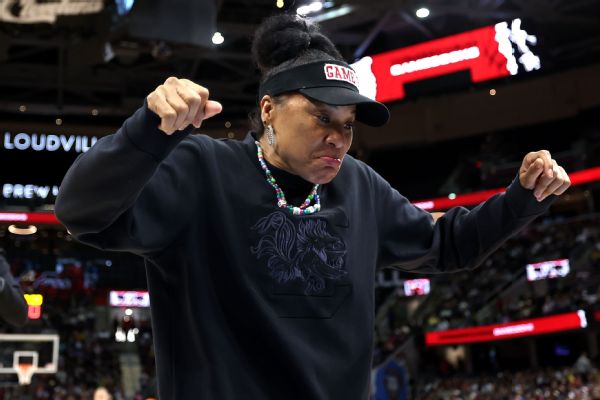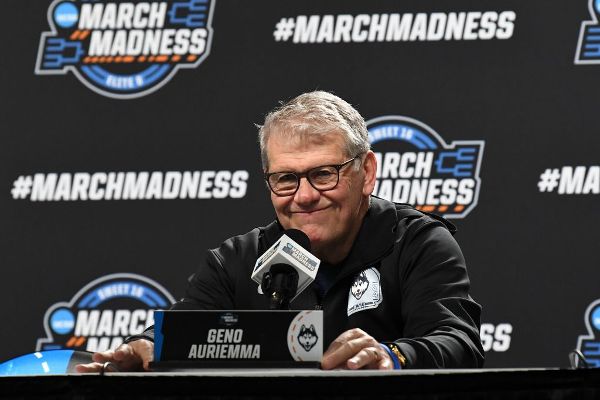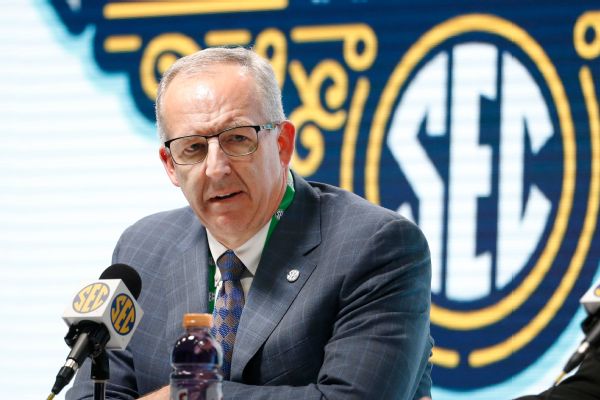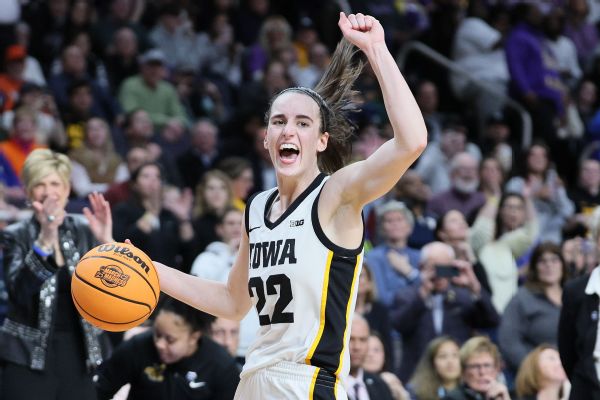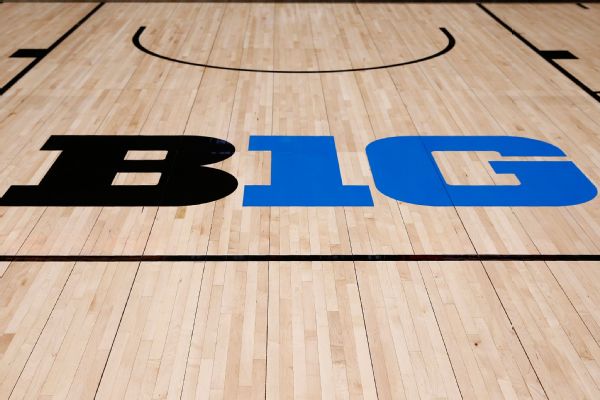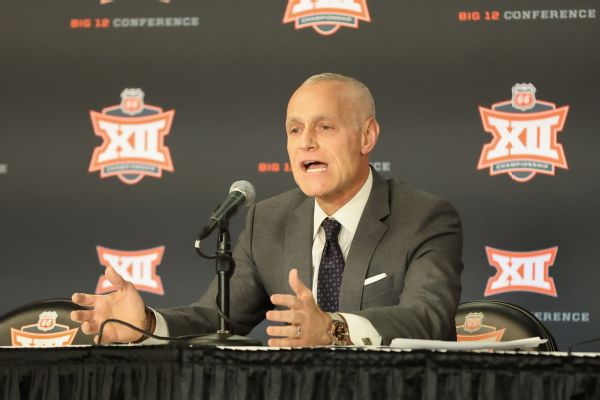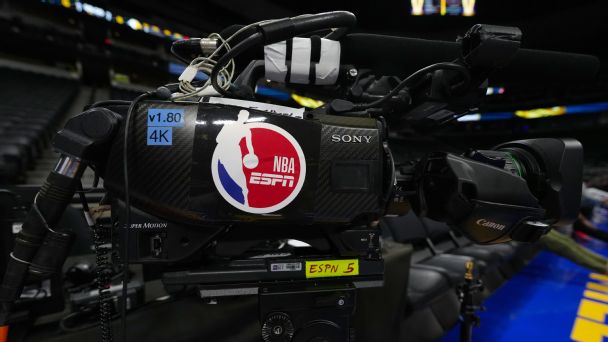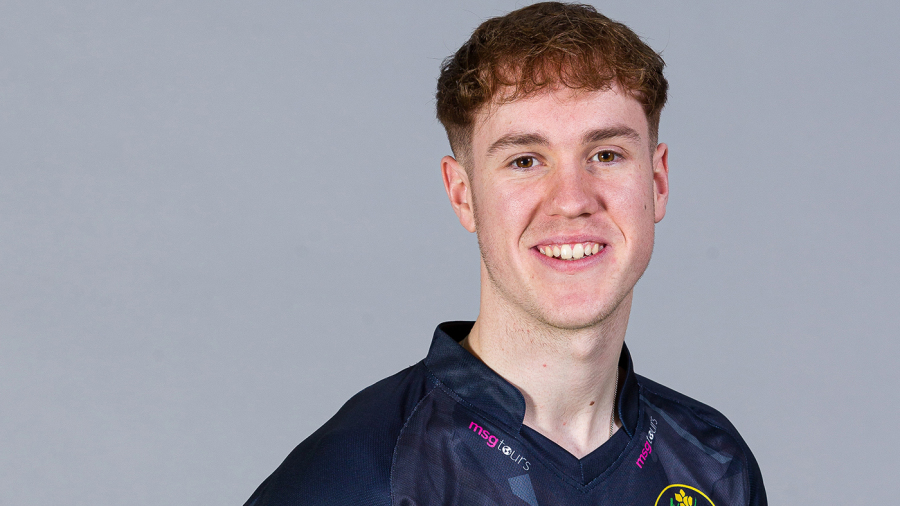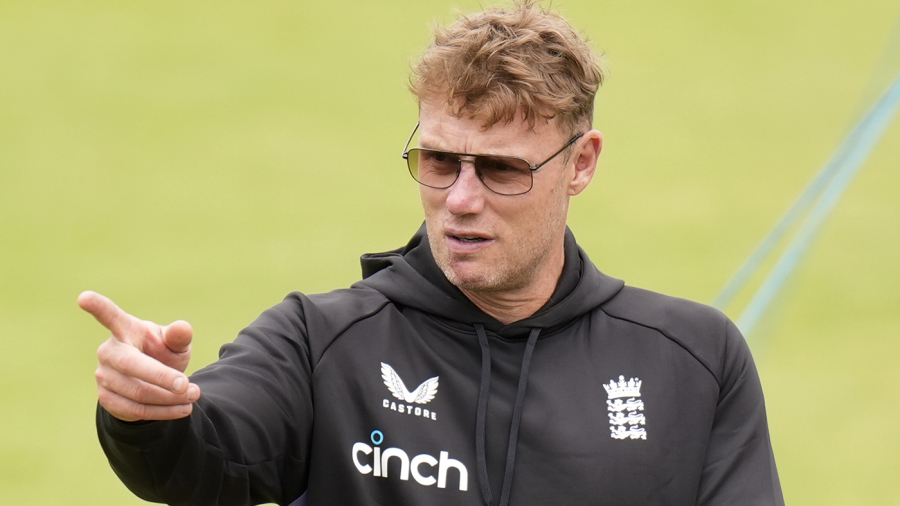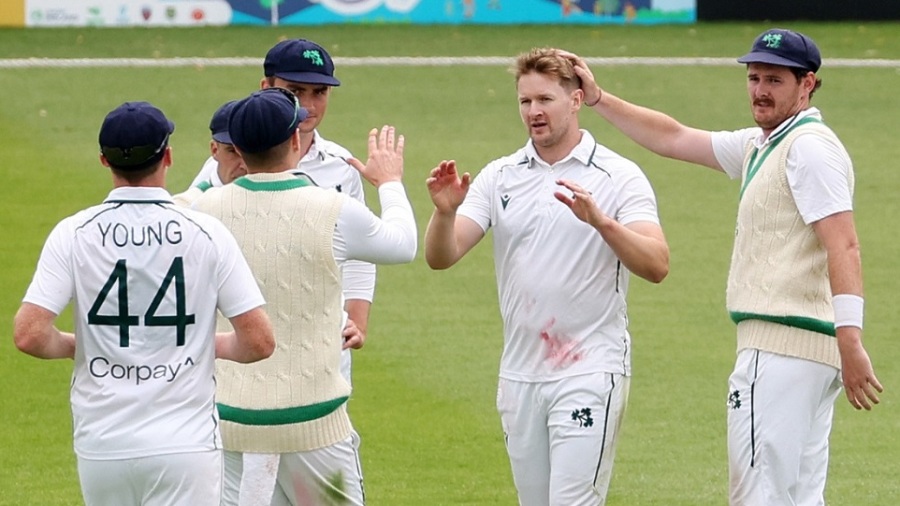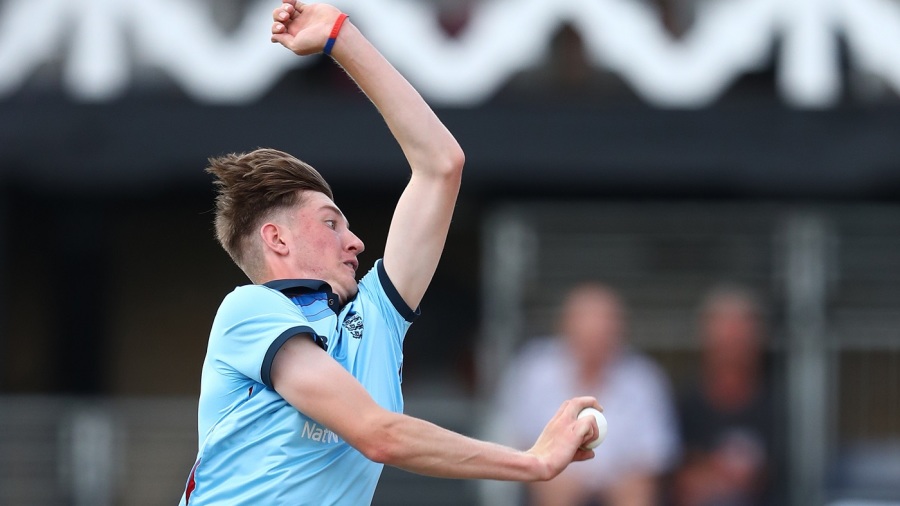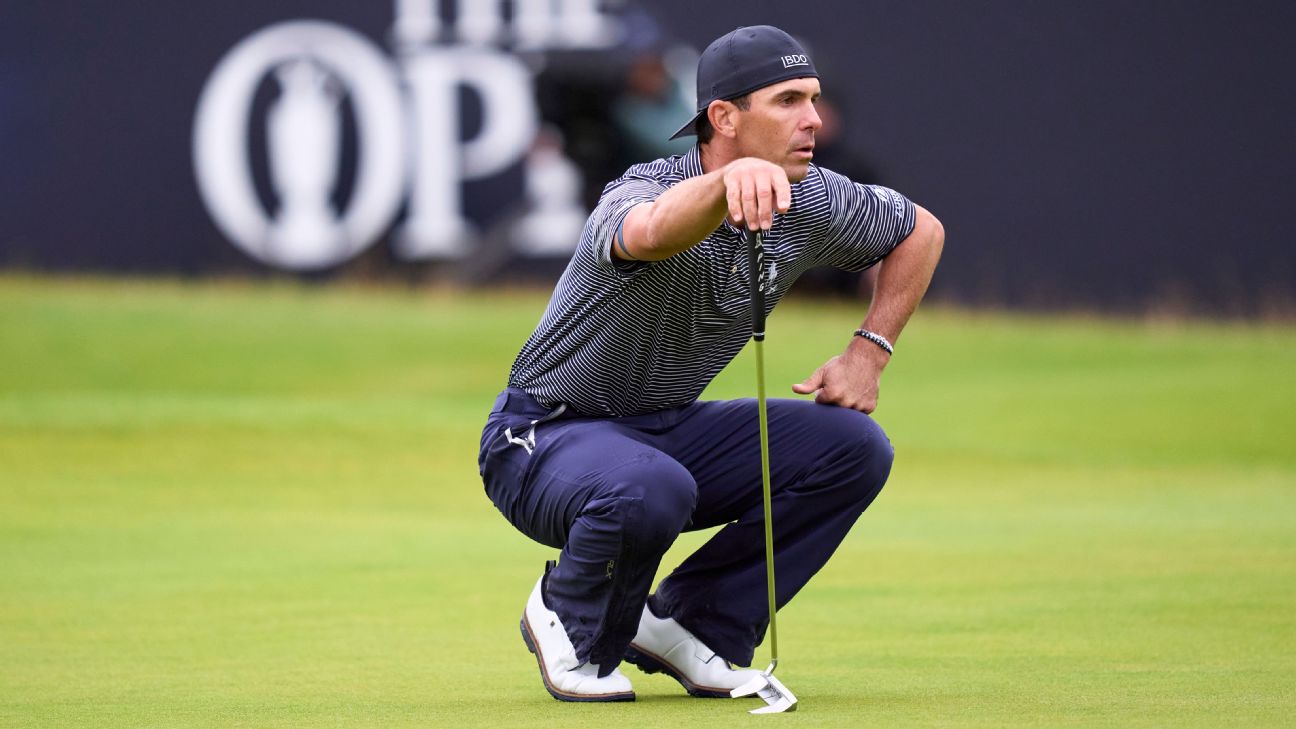![Mark Pope, Mitch Barnhart [608x342]](https://a.espncdn.com/photo/2024/0515/r1333409_608x342_16-9.jpg)
Sources Broncos sweeten top WR Sutton s deal
Mark Pope was certainly not the top choice for a Kentucky program that needed a home run coaching hire after John Calipari's unexpected move to Arkansas.
Yet, weeks into his tenure, the former Wildcats national champion has managed to woo the fan base, attract big NIL checks from wealthy boosters and build a roster that should make Kentucky competitive in the SEC again in the program's first post-Calipari season in 15 years.
Pope was the final major domino of the 2024-25 men's college basketball coaching hiring cycle that began before the season even finished. We had thought Louisville and Michigan were the biggest jobs on the carousel when those opened during the NCAA tournament.
Then SMU fired Rob Lanier and brought in USC's Andy Enfield -- whose spot in turn was taken by the Razorbacks' Eric Musselman, opening that opportunity for Calipari.
As it stands currently, 65 programs across Division I men's basketball will have new coaches on the sidelines in November. Some of those hires felt like good fits; others seemed less so.
How do the top programs' changes stack up? We've decided to give each program two grades: one for when the hire was announced and a second for how the decision looks now.
Before the transfer portal entry window closed on May 1, when most of the nearly 2,000 players in it were still uncommitted, it felt unfair to grade a hiring decision when rosters were in flux. Now, many of the top players are committed, so we have a better picture of what these new coaches have been able to accomplish in their new jobs.
Here are our grades for all the major program coaching hires for 2024-25.
Arkansas Razorbacks: John CalipariPros: Calipari, who replaced Eric Musselman, is a Hall of Fame coach with a national title under his belt and a reputation as a stellar recruiter. That already has helped him at Arkansas, where he has lured former Kentucky commit Boogie Fland and Florida Atlantic transfer Johnell Davis as part of a strong class in Calipari's first season in Fayetteville.
Cons: Despite having access to multiple future NBA prospects over the past decade, Calipari failed to lead Kentucky to the Final Four after 2015 and lost in the first round of the NCAA tournament in two of the past three seasons. That's a lengthy stretch of underachievement. Sure, the name is strong. But it's also fair to question whether Arkansas is getting a once-superb coach who is now past his prime.
Initial grade: A Grade now: A
BYU Cougars: Kevin YoungPros: College basketball continues to mimic the NBA, with more teams adapting a positionless style of play. Young, the former Phoenix Suns associate head coach who replaced Mark Pope for the Cougars, understands the demands of a modern offensive scheme, which he'll build around returning standout Richie Saunders and Utah transfer Keba Keita. A future NBA head coach is now BYU's leader.
Cons: Young hasn't coached college hoops in nearly 20 years. (He was an assistant at Utah Valley in 2005-06.) In recent years, multiple NBA staffers have struggled to adapt to the current landscape of the sport, which has been dominated by the transfer portal and NIL opportunities.
Initial grade: B- Grade now: B
DePaul Blue Demons: Chris HoltmannPros: At his peak, Holtmann led Butler to the Sweet 16 in 2017 before joining Ohio State. With the Buckeyes, he reached the NCAA tournament in four consecutive seasons. At DePaul, he already has added former Arkansas guard Layden Blocker (a four-star recruit in the 2023 class) and Louisville transfer JJ Traynor to the roster.
Cons: Holtmann finished higher than fifth in the Big Ten once and accrued a 30-30 record (9-25 in the Big Ten) in his last two years with the Buckeyes. He is tasked with rebuilding a DePaul squad that has had just one plus-.500 season since 2006-07. It's a hard job for a guy who hasn't had a lot of success in recent years.
Initial grade: B Grade now: B
Florida Atlantic Owls: John JakusPros: Despite having no head-coaching experience, the former Baylor associate comes from a successful coaching tree, which includes names such as Grant McCasland and Jerome Tang. Jakus was the Bears' associate head coach for the past two seasons before he made the move to Boca Raton. Although he is replacing a coach who led FAU to the 2023 Final Four, Jakus did help Baylor win a 2021 national title. Could he be the next former Baylor assistant to excel?
Cons: Jakus follows a head coach who had a lot of success and changed the program -- and, in some ways, the entire university -- with that Final Four run. Before Dusty May's tenure, FAU was a sub-.500 mid-major program. The bar is quite high now, though.
Initial grade: B- Grade Now: B
Kentucky Wildcats: Mark PopePros: For his introductory news conference at Kentucky, Pope emerged from a bus full of former players and other supporters as thousands of fans at Rupp Arena roared. Pope won a national title as a player with the Wildcats in 1996, and he has used that history to court the fan base. It also has helped him attract the NIL cash he required to recruit talented transfers, such as Otega Oweh (Oklahoma) and Lamont Butler (San Diego State).
Cons: Kentucky is arguably the most prominent brand in men's college basketball. The school's wish list included UConn's Dan Hurley, Chicago Bulls coach Billy Donovan and Baylor's Scott Drew. Pope knows he wasn't the top choice for Kentucky. He had a solid run at BYU, but he's not in the same stratosphere -- based on his résumé -- as the other targets who were ahead of him or his predecessor.
Initial grade: C Grade now: B+
Louisville Cardinals: Pat KelseyPros: Kenny Payne's replacement has displayed a different kind of energy that has impressed a fan base recovering from three consecutive sub-.500 seasons and has helped Kelsey nab top players, including Chucky Hepburn (Wisconsin) and Aly Khalifa (BYU). Per EvanMiya.com, Kelsey currently has the No. 2 transfer class in the country.
Cons: Louisville is a basketball-crazed school with a yearning to return to its glory years. Between a slate of NCAA violations and lackluster results in recent years, however, the Cardinals are a long way from their 2013 national title run, which was vacated by the NCAA. Kelsey, a former mid-major coach who hasn't won an NCAA tournament game yet, will be asked to achieve a feat his more experienced predecessors could not.
Initial grade: B- Grade now: B
Michigan Wolverines: Dusty MayPros: After finishing 54-19 over the past two seasons, with back-to-back NCAA tournament appearances and a trip to the Final Four in 2023, May became one of the hottest names on the coaching carousel. He had other opportunities, but he picked Michigan, where he'll bring his winning pedigree -- and former FAU star Vladislav Goldin -- to a Big Ten program with the resources and brand to evolve into a national title contender again.
Cons: It has never been more difficult for major conference programs to compete in this era of the transfer portal and NIL. May is making the transition to a high-major school, which expects to play at the topmost levels. His predecessor was a former star at the school, and even he couldn't sustain that success. What can May do that Juwan Howard could not? That's the question May will have to answer.
Initial grade: A Grade now: A
Ohio State Buckeyes: Jake DieblerPros: After assuming the interim head coach role when Chris Holtmann was fired late last season, Diebler -- the 37-year-old brother of former Ohio State standout Jon Diebler -- led the Buckeyes to an 8-3 record (5-1 in the Big Ten) to finish the campaign. That was enough to help him earn the full-time job. Weeks into his tenure, he has attracted former South Carolina star Meechie Johnson and other key transfers to Columbus.
Cons: This was a difficult job for Division I veterans Thad Matta and Holtmann. Diebler has never had a head-coaching gig. To start in the Big Ten -- which will add four former Pac-12 squads next season -- as his first head-coaching job is a tall task. The run he put together to get the job will be far different from the demands he'll face to sustain it season after season.
Initial grade: C+ Grade now: C+
Oklahoma State Cowboys: Steve LutzPros: Lutz has won three consecutive conference tournaments -- Southland Conference tournament crowns in 2022 and 2023 with Texas A&M-Corpus Christi and a Conference USA tourney championship this year with Western Kentucky -- in his three years as a head coach. He seems prepared for the jump to the Big 12. Lutz also brought Brandon Newman (10.1 points per game) with him from Western Kentucky to anchor this team.
Cons: Lutz has been a Division I head coach for only three seasons. He is entering an expanded Big 12 where he'll have to compete against some of the top coaches in the country. Even if he's a standout coach, the competition for top talent in this league is intense.
Initial grade: C+ Grade now: B-
SMU Mustangs: Andy EnfieldPros: SMU wanted a coach who could elevate its status and compete at a high-major level. Enfield, who followed his "Dunk City" stint at Florida Gulf Coast with a lengthy tenure at USC, already has added key transfers Matt Cross (UMass) and Kevin Miller (Wake Forest) before his first season in Dallas.
Cons: Enfield only reached the second weekend of the NCAA tournament once during his time at USC, despite producing eight NBA players. Last season, he had the No. 1 recruit in the country (Isaiah Collier), Bronny James and veteran Boogie Ellis but still finished 15-18 overall and 8-12 in the Pac-12. (In comparison, Rob Lanier won 20 games with the Mustangs in 2023-24.) Now, Enfield will have to battle North Carolina and Duke in a stronger league.
Initial grade: B Grade now: B
Stanford Cardinal: Kyle SmithPros: In eight seasons at Stanford, Jerod Haase had just one plus-.500 campaign and one NCAA tournament appearance. Smith has had seven 20-win seasons with Columbia, San Francisco and Washington State. He also knows how to turn programs around, making the Cougars relevant again after leading them to the NCAA tournament last season for the first time in 16 years.
Cons: Stanford is not an easy job in the current climate of college basketball. Its academic standards have always complicated its ability to lure recruits and transfers. Plus, Stanford has only recently embraced NIL. In the ACC, Smith will have to compete against teams that already have adapted in ways the Cardinal have not.
Initial grade: A- Grade now: A-
USC Trojans: Eric MusselmanPros: The Trojans nabbed one of the most coveted coaches on the carousel. Since 2015-16, Musselman has reached the NCAA tournament six times in nine seasons, including three Sweet 16s and two Elite Eights. Musselman also has managed to blend top transfers and young talent, producing nine NBA players; it's a skill that has perplexed other coaches.
Cons: Musselman no longer stands out for his reliance on the transfer portal to reload each season. He also is joining a USC program that will have to convince recruits and their families that cross-country trips in the Big Ten won't be academically disruptive. He's a proven coach, but the landscape ahead is filled with unknowns for the Trojans.
Initial grade: A+ Grade now: A+
Vanderbilt Commodores: Mark ByingtonPros: Byington's life changed after he led James Madison to a win at Michigan State in the 2023-24 opener. Overall, he won 32 games last season -- a mark Vanderbilt has never reached -- elevating his profile among potential Division I coaching hires this offseason. In his first year in Nashville, Tennessee, Cornell transfer Chris Manon (12.5 PPG) will anchor Byington's incoming class that aims to duplicate the coach's success of a season ago.
Cons: This isn't the Sun Belt. Byington will have to compete against John Calipari, Nate Oats, Bruce Pearl, Rick Barnes and other top SEC coaches in one of America's toughest leagues. The school's academic standards have traditionally created challenges in recruiting too. And it hasn't won an NCAA tournament game since 2012. It's fair to question whether Vanderbilt needed a more prominent name to overcome those obstacles.
Initial grade: B- Grade now: B-
Washington Huskies: Danny SprinklePros: Sprinkle was one of the hottest names on the coaching carousel after leading Utah State to a Mountain West championship in one of the league's strongest seasons and a second-round appearance in the NCAA tournament. In his five years as head coach at Montana State and Utah State, he reached the Big Dance three times. He already has signed Great Osobor (17.7 PPG), one of the top transfers in the country who also had followed him from Montana State to Utah State. Sprinkle is off to a great start.
Cons: At Utah State, Sprinkle had one of the best home environments in college basketball. The Huskies, meanwhile, played in a half-empty Alaska Airlines Arena last season. Sprinkle is a proven winner, but he now has to convince an exhausted fan base that hasn't seen an NCAA tournament appearance in five years to support the program once again as it transitions to the Big Ten, where the competition will be stronger than it was in the Pac-12.
Initial grade: A Grade now: A+
West Virginia Mountaineers: Darian DeVriesPros: After a rocky year -- with Bob Huggins' departure following his DUI arrest leading to a season with an interim coach -- West Virginia hired a 47-year-old coach who has spent the past 20 years working to land a high-major gig. DeVries led Drake to three NCAA tournament appearances over the past four seasons, and he has won 150 games over the past six campaigns. And he has brought along his son, Tucker DeVries, the two-time Missouri Valley Conference player of the year.
Cons: The past two successful leaders in Morgantown, John Beilein and Huggins, were established coaches with the pedigrees and résumés to recruit talent. That mission might be a little more difficult for DeVries, who is stepping into an expanded and extremely competitive Big 12. There is more room to fall behind than gain momentum.
Initial grade: B+ Grade now: B+


